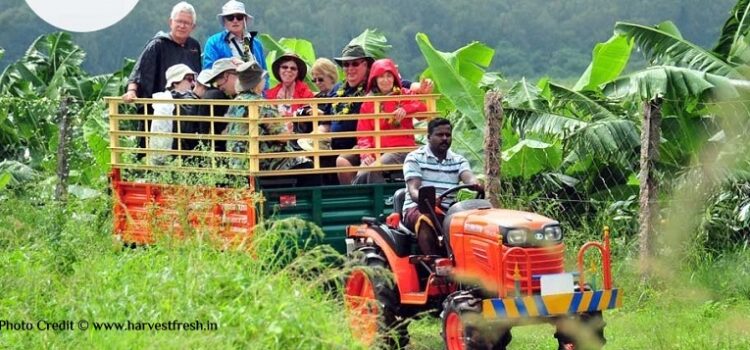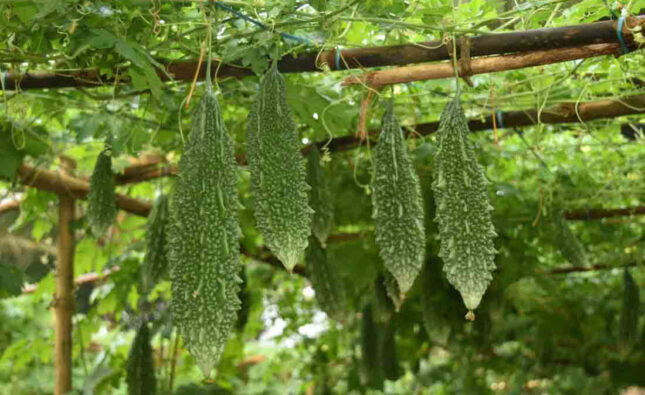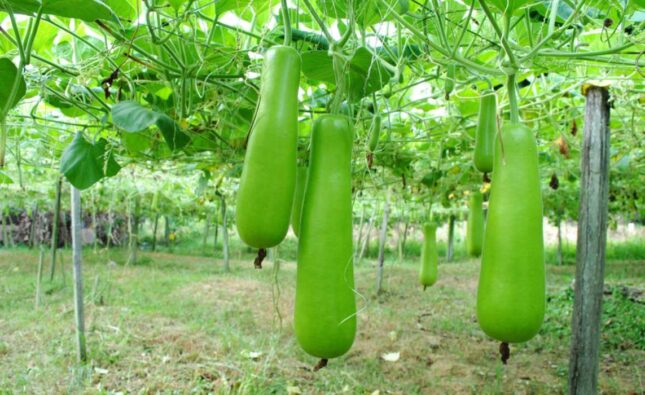What is the Agro-tourism & Its Scope
Agro-tourism, also known as agritourism, is a form of tourism that combines agricultural activities with recreational and educational experiences for visitors. It involves inviting tourists to rural areas and farms to engage in various agricultural-related activities, learn about farming practices, and experience rural lifestyle and culture. Agro-tourism aims to provide visitors with an authentic and immersive agricultural experience while generating additional income for farmers and promoting rural development.
Agro-tourism activities can include:
- Farm Tours: Visitors are taken on guided tours around the farm to observe and learn about various agricultural processes, such as planting, harvesting, or animal husbandry. They may also have the opportunity to interact with farm animals and learn about their care.
- Pick-Your-Own Operations: Visitors can participate in picking fruits, vegetables, or flowers directly from the fields. This allows them to experience the farm environment firsthand and take home freshly harvested produce.
- Farm Stays: Visitors have the option to stay overnight on the farm, usually in guesthouses or cottages. This provides an opportunity to experience the daily life of a farmer, participate in farm activities, and enjoy the natural surroundings.
- Agricultural Workshops and Classes: Farms can organize workshops and classes to teach visitors various skills related to agriculture, such as cheese making, bread baking, or organic farming techniques. These hands-on experiences allow visitors to learn and engage with agricultural practices.
- Rural Festivals and Events: Farms often host festivals or events that showcase local agriculture, traditions, and cultural activities. These can include harvest festivals, farm-to-table dinners, craft fairs, or folk music performances. Such events provide entertainment and create a festive atmosphere.
- On-site Retail and Farm Stores: Farms may have on-site retail stores where visitors can purchase farm-fresh products such as fruits, vegetables, dairy products, honey, or handmade crafts. This allows visitors to directly support the farm and take home local produce.
Agro-tourism benefits both farmers and tourists. Farmers can diversify their income streams, promote their products, and educate the public about agriculture. Tourists, on the other hand, get a unique and educational experience, learn about sustainable farming practices, and connect with rural communities.
Scope of Agro-Tourism
The scope of agro-tourism is vast and offers numerous opportunities for farmers, rural communities, and tourists. Here are some key aspects that highlight the scope of agro-tourism:
- Economic Development: Agro-tourism can contribute to the economic development of rural areas. It provides an additional source of income for farmers, helps diversify their revenue streams, and supports the local economy. Agro-tourism can create employment opportunities for local residents, such as tour guides, hospitality staff, or artisans producing crafts and products for sale.
- Tourism Promotion: Agro-tourism attracts tourists to rural areas and agricultural landscapes that are often overlooked by traditional tourism. It showcases the natural beauty of the countryside, cultural heritage, and agricultural practices. Agro-tourism destinations can become tourist attractions in themselves, contributing to the overall tourism development of a region.
- Education and Awareness: Agro-tourism provides educational opportunities for visitors to learn about farming practices, sustainable agriculture, and the importance of local food systems. It raises awareness about environmental conservation, biodiversity, and the challenges faced by farmers. Agro-tourism can also serve as a platform for promoting organic farming, agroecology, and responsible agricultural practices.
- Cultural Exchange: Agro-tourism allows tourists to experience rural lifestyles, traditions, and cultural heritage. Visitors can interact with local farmers, learn about their customs, and participate in cultural activities or festivals. This promotes cross-cultural understanding, appreciation of local traditions, and the preservation of rural heritage.
- Market Expansion for Farmers: Agro-tourism provides an avenue for farmers to market their agricultural products directly to consumers. On-farm retail stores or farmers markets associated with agro-tourism operations offer opportunities for farmers to sell their fresh produce, value-added products, or handicrafts. This direct marketing channel eliminates intermediaries, allowing farmers to capture a larger share of the value chain.
- Rural Revitalization: Agro-tourism can help revitalize rural communities by attracting investment, promoting infrastructure development, and enhancing the quality of life for local residents. It encourages the preservation of agricultural land and supports sustainable land use practices. Agro-tourism also encourages entrepreneurship, as farmers and locals can diversify their businesses by offering services such as accommodation, transportation, or guided tours.
- Health and Well-being: Agro-tourism provides opportunities for visitors to engage in outdoor activities, connect with nature, and experience the therapeutic benefits of the countryside. It promotes wellness tourism, eco-tourism, and recreational activities such as hiking, birdwatching, or farm-to-table culinary experiences.
The scope of agro-tourism is highly adaptable and can be tailored to different types of agriculture, local resources, and tourist preferences. It has the potential to contribute to sustainable rural development, preserve agricultural landscapes, and foster a deeper connection between farmers, consumers, and the environment.






